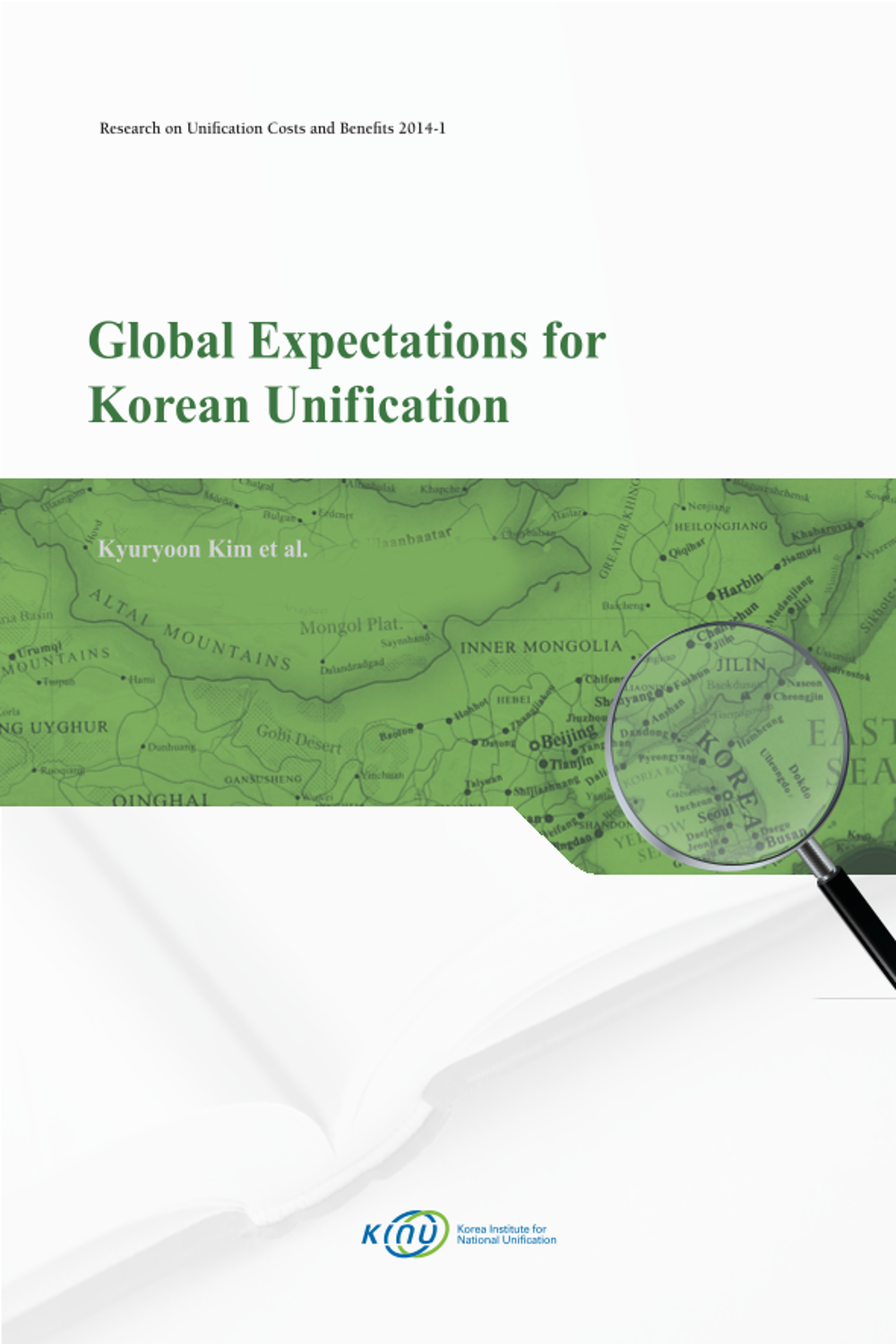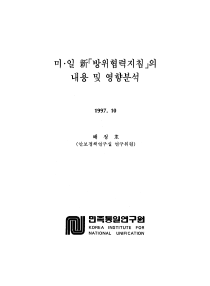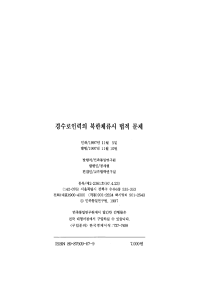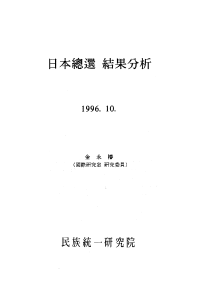
연구원발간물Research on Unification Costs and Benefits 2014-1
Global Expectations for Korean Unification
- 개인저자
- Kyuryoon Kim, Dong Gu Suh, Kuyoun Chung, Adriana Elisabeth, Antoine Bondaz, Emma Campbell, Garth Shelton, Henrique Altemani de Oliveira, James Edward Hoare
- 발행사항
- 서울 : 통일연구원, 2014
- ISBN
- 9788984797864
- 청구기호
- 000 비용14-1
- 키워드
- Global, Expectations, Korean, Unification
소장정보
| 위치 | 등록번호 | 청구기호 / 출력 | 상태 | 반납예정일 |
|---|---|---|---|---|
이용 가능 (2) | ||||
| 1자료실 | G0015484 | 대출가능 | - | |
| 1자료실 | G0015485 | 대출가능 | - | |
이용 가능 (2)
- 등록번호
- G0015484
- 상태/반납예정일
- 대출가능
- -
- 위치/청구기호(출력)
- 1자료실
- 등록번호
- G0015485
- 상태/반납예정일
- 대출가능
- -
- 위치/청구기호(출력)
- 1자료실
책 소개
The current research aims to provide analytical understandings on the costs and benefits of Korean unification from political, social, and economic aspects. Upon the two years of earlier works, we constructed an analytical model encompassing both spatial and temporal dimensions of the unification process, and built comprehensive architecture, ‘the Guiding Type of Unification.’ Based on this model, we have broaden the scope of the research by collecting diverse perspectives from the worldwide experts of the leading countries. We expect to observe the global trends of world governance. Indeed, the increasing importance of Group of Twenty (G20) countries in managing global problems reflects both political and social aspects of the changes occurring in global governance. Another reason for this would be South Korea’s diversified international relations in the recent years. Hence, it seems necessary to take a closer look on the international dimensions of Korean unification. In this vein, we requested thirteen experts of the leading countries to express their opinions on Korean unification. In order to collect international perspectives in a coordinated manner, scholars were provided with a guideline to include their perspectives on the expected effects of Korean Unification and the potential roles of their countries during and after the process. Participants were also asked to present candid implications for Korean unification.
목차
Acknowledgments vii
Abstract ix
Ⅰ. INTRODUCTION 1
Ⅱ. EFFECTS AND ROLES 7
1. Argentina 9
2. Australia 33
3. Brazil 64
4. Canada 101
5. France 123
6. Germany 147
7. India 183
8. Indonesia 200
9. Italy 215
10. Mexico 234
11. South Africa 264
12. Turkey 306
13. United Kingdom 338
Ⅲ. ANALYSIS AND EVALUATION 361
1. Expected Effect · 363
2. Potential Roles 370
3. Classification of Leading Countries 379
Ⅳ. CONCLUSION 387
References 399
Recent Publications 421






